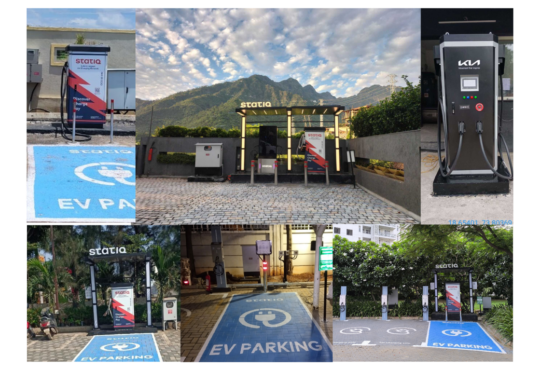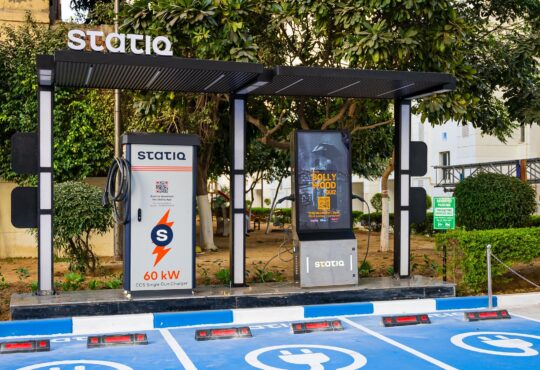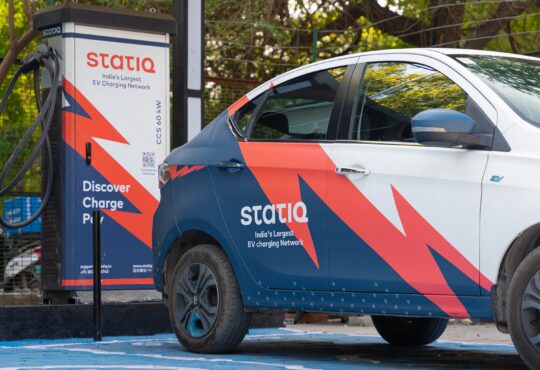
Transforming Public Transportation with Smart Charging
India is progressing towards electric mobility at a fast pace. In 2022, more than one million electric vehicles were sold, marking a record 206% year-on-year growth. In 2023, more than 15 lakh EVs were sold, clearly showing the seriousness of Indian buyers towards green mobility. The country has an ambitious plan to achieve 30% EV sales by the end of 2030, with a vision of increasing sales to 30% in private cars, 70% in commercial vehicles, 40% in buses, and 80% in two-wheelers and three-wheelers by 2030. This could translate to 80 million EVs on Indian roads by 2030.
With the present growth rate, India needs at least 1.32 million EV charging stations by 2030, as stated in the CII Report. The present state of charging infrastructure is one of the important factors that need immediate attention, and we cannot rely solely on traditional EV charging for the electrification of public transport.
What Is Smart EV Charging?

Smart charging is an intelligent charging system that shares data connections over the cloud with the charging operator. It allows an EV owner to manage the charging of their vehicle remotely. The charging station owner can also monitor, manage, and restrict the use of their devices remotely to optimize energy consumption. With cloud-based solutions, smart charging can be modified with new software updates and features.
How Does Smart Charging Contribute to Public Transportation Electrification?
Smart charging can play a crucial role in contributing to the electrification of public transportation by optimizing load management and building charging infrastructure to optimize the efficiency of public fleets.
- Charging Infrastructure Planning: Smart charging systems use data analytics to identify optimal locations for charging stations. This helps in strategically placing charging infrastructure along public transportation routes, ensuring convenient access for electric buses and minimizing downtime.
- Load Management: Smart charging systems can dynamically manage the load on the power grid by adjusting the charging rates based on grid demand. This helps prevent grid congestion and ensures a stable power supply during peak periods, reducing the strain on existing infrastructure.
Case Study: Smart EV Charging in the Netherlands
The Netherlands is a global leader in implementing smart charging for electric vehicles (EVs). Let’s delve into how it helped boost EV adoption in the country:
Early Adoption and Investment
- The country recognized the potential of smart charging for grid stability and EV integration in its early phases. It invested in smart charging infrastructure, including financial incentives for EV drivers and utilities to adopt smart technologies.
- They build national policy frameworks that include clear regulations and standards for smart charging technology and data exchange, ensuring compatibility and smooth operation across the country.
- The government actively encouraged pilot projects and collaborations between stakeholders like charging station operators, grid operators, and EV manufacturers.
Impact
- One notable success story is the “Flexpower” program in Amsterdam. It implemented smart charging profiles on public stations, adjusting charging rates based on grid demand.
- This resulted in a 10% reduction in peak grid load, demonstrating the effectiveness of smart charging in managing grid strain.
Benefits For All
- Grid operators: Enhanced grid stability and reduced peak demand.
- EV drivers: Cost savings through off-peak charging and improved charging experience.
- Environment: Reduced CO2 emissions through efficient grid operation and integration of renewable energy.
In conclusion, the electrification of public transportation is not just an environmental imperative but also a path toward sustainable and efficient urban mobility. Smart charging will enable us to establish a robust EV charging network, contributing to a hassle-free experience for EV owners, charger operators, and grid operators.
Reference
- FlexPower Amsterdam • Projects • ElaadNL
- Smart Charging of Electric Vehicles: the ultimate guide
- Large Scale Smart Charging of Electric Vehicles in Practice : Article by Marisca Zweistra, Stan Janssen and Frank Geerts



